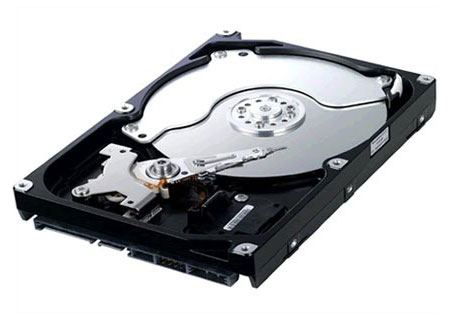Following on the heels of big new spinning-disk storage drives released by Western Digital, Toshiba and Seagate, Samsung rejoined the capacity party July 29 with Spinpoint F3, a new product line of high-density disk drives for high-performance computing systems that go up to 1TB in storage space.
The F3 operates at 7200 rpm and has capacities of up to 1TB using two 500GB per platter disks. It will be aimed at makers of PCs, servers and storage arrays.
The Spinpoint F3 is currently available in 500GB capacities worldwide. The 1TB drive is scheduled for initial shipment in August, Samsung said.

The Spinpoint F3 utilizes increased areal density per platter and provides up to a 30 percent higher performance than a three-platter 1TB in the same 3.5-inch form factor, Samsung claimed. A reduction in mechanical parts also contributes to enhanced reliability in terms of anti-shock and data failure. A key to increased areal disk density is perpendicular magnetic recording. PMR is a newly re-implemented technology for data recording on hard disks that was first demonstrated in Japan in 1976. The technique is believed to be capable of delivering up to 10 times the storage density of conventional longitudinal recording -- on the same media.
There were some attempts to use PMR in floppy disks in the 1980s, but it was not reliable enough. Today there is renewed interest in using it in HDDs, and new engineering methods are making it work. All HHD makers are now using a form of PMR in their manufacturing processes.
Areal densities are not yet close to their limits, analysts say.
"Market forecasts estimate that 500GB per platter and higher densities will experience more than 15 percent annual growth in the next five years, with expectations that high-density storage will become mainstream for 3.5-inch storage beyond 2010," said Mark Geenen, president of TRENDFOCUS, a market analysis firm.
Samsung’s new hard drive utilizes its own low-noise operation technologies, SilentSeek and NoiseGuard, to achieve a quiet operation system, the company said.
The F3 also incorporates a 3.0 Gbps SATA interface, native command queuing features, and a 16MB or 32MB buffer memory.


